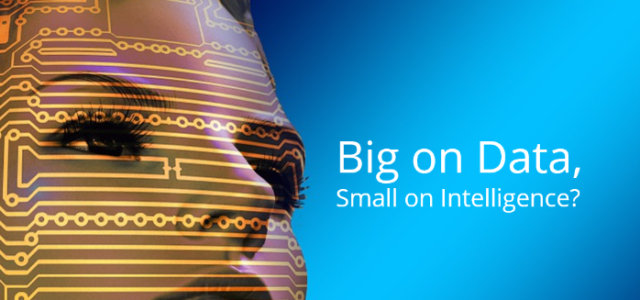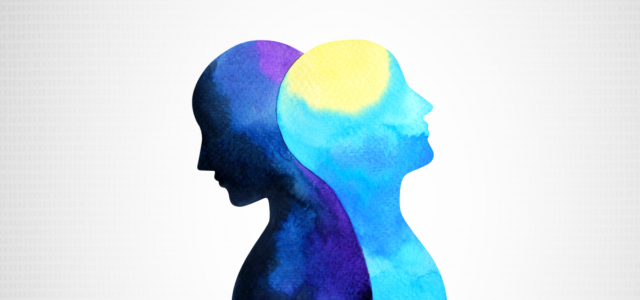After publishing an article about what Digital Transformation is NOT, a lot of people told me that I have the obligation now to explain what it actually is. I’ve done so over the last years, tried a lot of different definitions but I have to admit: with little success.
That’s my own fault, I know. I just couldn’t find the right words yet. So I posted an innocent question on LinkedIn.
Digital Transformation: Who is able to give a definition of DX which an ordinary mortal can understand?
I don’t know what happened. I must have pushed a button. See for yourself here:
Digital Transformation Happens. Right Now.
I think everyone in that discussion agreed upon the fact that digital transformation is a phenomenon that is happening globally right now. Open your eyes. It is all around us. Our world is transforming digitally. Smartphones, broadband, new services.
When I was a child people would use phones to call a place. A household, an office. You had to be lucky that someone would pick up the phone. Remember answering machines? Digital technologies finally got it right. People want to call people not places or machines.
Organisations hesitating to transform along with all that global change are facing massive problems. The most obvious problem is that they are being disrupted by non-traditional organisations entering their market and better satisfy people’s needs. Look at Uber, AirBnB, Netflix.
Empowering People
True digital transformation empowers people. We are not only talking about customers. In digital transformation everyone is joining in. By giving feedback on solutions. Delivering usage statistics automatically. It is important for people today to be part of the change.
Without creative, passionate people there is no transformation. And traditional organisations unfortunately have been creating working environments which don’t attract them. Creative, passionate people are entrepreneurs themselves. That’s why organisations are founding their digital hubs and innovation units in an effort to open up space for creativity.
It is important to bring together people from business units who have a deep understanding of the industry, IT people who have a profound knowledge of the existing IT landscape and engineers, designers, researchers. Without such cross-functional teams consisting of internal as well as external experts digital transformation will not happen in an organisation.
People’s Experience
Digital transformation changes the way we perceive the world around us. Technology has become deeply connected with our lives. Ten years ago we were fascinated about what we can do with technology. Today using technology has become a natural thing to do. What we care about now is how it feels like.
Remember those times when you would need a training course to be able to use a piece of software? Those times are over. That’s why digital transformation without user experience research and design is just not possible.
Any piece of technology which is not exceptionally well designed will just not be used. Everyone uses Gmail, WhatsApp, Instagram, LinkedIn. Whatever digital product is launched inside an organisation or to the public offering less ‘joy of use’ will just be ignored by us, the people.
Organisational Change
Hand in hand with empowering people through digital technologies needs to come an organisational change. Rigid hierarchies have a tendency to slow down everything. Matrix organisations do better. But agility isn’t something that can be ‘applied’.
Achieving cultural change is definitely the hardest part for traditional businesses. They tend to think of digital transformation as an initiative of a limited period and budget. It’s not. Once an organisation starts to transform digitally, there is no way back.
That’s also the reason why buying a successful StartUps will not transform your organisation. StartUps are ‘born that way’. They don’t need to transform. In the worst case StartUps adapt the traditional business culture.
Reimagine Business
The digital era hasn’t started yesterday. A lot of organisations are digitised. They tried to exploit technology to enhance the way they do their business ever since. But very few were actually thinking about creating something new with digital technologies at their hands. Only the courageous and brave.
And courage and boldness were rewarded. Today we see companies that didn’t exist a few years ago tearing apart whole industries. That’s why digital transformation won’t work without reinventing business with all the changes in mind which everyone can see coming.
Have you seen car-sharing services in major cities recently taking over? Are you thinking of just giving up your car? No more cleaning, changing of tyres, horrendous repair shop bills, expensive car insurance? You are not alone. Will this force insurance companies to change their business models? You bet it will.
Technology
In my personal opinion, technology goes last. Once an organisation has wrapped their heads around their major challenges of their digital transformation, developing products or services is not hard to do. I don’t even think that “understanding technology” is important at all.
What is important though it to understand the effect technological change has on society, environment, civilisation. It is important to observe what’s going on around us and reflect upon it. If we are curious, we find others who are like-minded. That’s how StartUps are founded.
Wrap Up
If you scroll through the discussion thread of my post which was supposed to help me to find a definition, you’ll find a lot of definitions along with links to blog posts, charts even comics. It is just a ton of great resources and I want to thank all those bright people for joining in and sharing their valuable knowledge.
Also, I thought that discussion would be enough material to write a book on the topic. But then I realised it has been done already! Therefore I am quoting Lindsay Herbert here, I’ve taken her words from the short promotional video she did for her new book.
“Digital Transformation really just means being more adaptive to change itself.
It’s about using digital technologies and ways of working that have been brought about by the information age to understand the change that’s happening around an organisation.
And it’s about to be able to react on it on a much more dynamic and rapid basis than organisations have ever used to be working before.”
~ Lindsay Herbert
Article by channel:
Everything you need to know about Digital Transformation
The best articles, news and events direct to your inbox
Read more articles tagged: Definition, Featured







